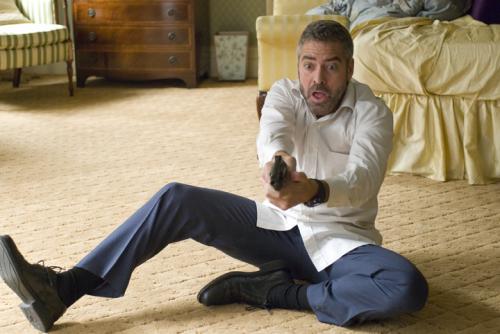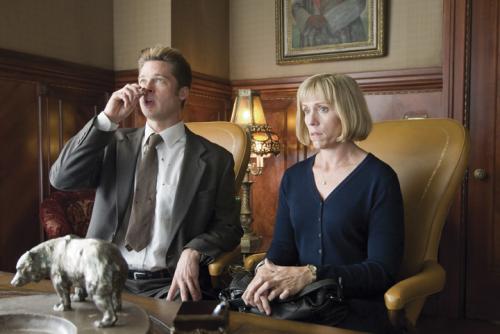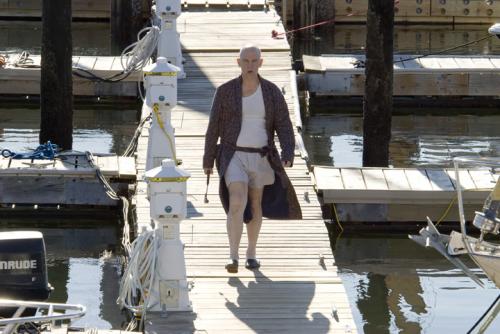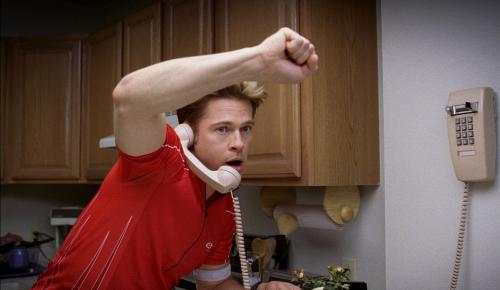The Best view | Burn After Reading

The latest updates, reviews and unmissable series to watch and more!
You are now subscribed
Your newsletter sign-up was successful
Want to add more newsletters?

ONCE A WEEK
What to Watch
Get all the latest TV news and movie reviews, streaming recommendations and exclusive interviews sent directly to your inbox each week in a newsletter put together by our experts just for you.

ONCE A WEEK
What to Watch Soapbox
Sign up to our new soap newsletter to get all the latest news, spoilers and gossip from the biggest US soaps sent straight to your inbox… so you never miss a moment of the drama!
With their latest movie, Burn After Reading, the Coen Brothers have disappointingly retreated from the chilly heights of their brilliant Oscar-winning No Country for Old Men and taken refuge in the glib, smartass cynicism that’s been a feature of so many of their movies.
Yet again the Coens parade a carnival of stupidity before us, another cavalcade of caricatured schmucks, imbeciles and idiots to rank alongside the confederacy of dunces that lined up in their 1995 black comedy Fargo – yet without the warmth and humanity of Frances McDormand’s shrewd, heavily pregnant police chief Marge Gunderson in that movie to temper the prevailing mood of sneering misanthropy.

McDormand appears in Burn After Reading too, but her character here has none of Marge’s virtues. Her Linda Litzke is a dim worker in a Washington gym who is desperate to fund the expensive course of extensive plastic surgery she believes will transform her life for the better.
Meanwhile, in the same city but inhabiting a completely different world is another dissatisfied soul: John Malkovich’s Osborne Cox, a prissy, bow-tie-wearing CIA analyst with a drink problem and a lofty disdain for the folly of everyone around him. But he’s not nearly as smart as he thinks he is. His wife, a frosty, patrician doctor played by Tilda Swinton, is having an affair under his nose with George Clooney’s wolfish federal marshal, Harry Pfarrer, while his superiors at work don’t appear to share his high estimation of his own abilities.


Yet it’s Burn After Reading’s contempt for its characters that irritates me most. Richard Jenkins, as the gym boss, who nurses a silent crush on Linda, is the nearest there is to a sympathetic individual, but he appears to be regarded with the same derision as everyone else.
I suppose you could try to argue that The Coens are attempting a skewed satire on the arrogant folly of American foreign policy (in the film's CIA strand), and on the delusional folly of American self-improvement (in the gym strand), but it’s a big stretch. Looking back on the highs and lows of the Coens’ career, I’m beginning to suspect that the brothers, like Malkovich’s Osborne, aren’t quite as smart as they think they are.
The latest updates, reviews and unmissable series to watch and more!
A film critic for over 25 years, Jason admits the job can occasionally be glamorous – sitting on a film festival jury in Portugal; hanging out with Baz Luhrmann at the Chateau Marmont; chatting with Sigourney Weaver about The Archers – but he mostly spends his time in darkened rooms watching films. He’s also written theatre and opera reviews, two guide books on Rome, and competed in a race for Yachting World, whose great wheeze it was to send a seasick film critic to write about his time on the ocean waves. But Jason is happiest on dry land with a classic screwball comedy or Hitchcock thriller.


